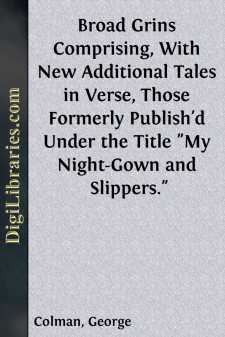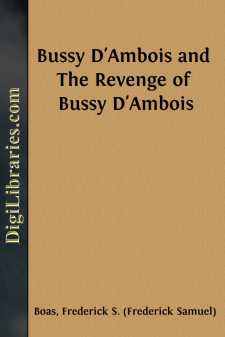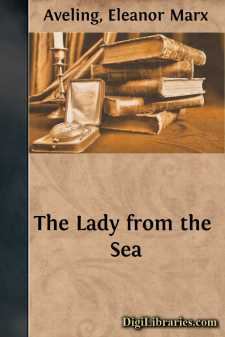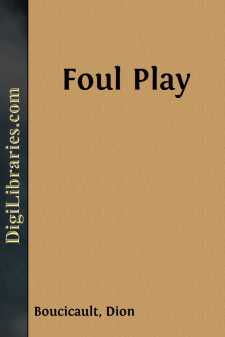Categories
- Antiques & Collectibles 13
- Architecture 36
- Art 48
- Bibles 22
- Biography & Autobiography 813
- Body, Mind & Spirit 142
- Business & Economics 28
- Children's Books 17
- Children's Fiction 14
- Computers 4
- Cooking 94
- Crafts & Hobbies 4
- Drama 346
- Education 46
- Family & Relationships 57
- Fiction 11829
- Games 19
- Gardening 17
- Health & Fitness 34
- History 1377
- House & Home 1
- Humor 147
- Juvenile Fiction 1873
- Juvenile Nonfiction 202
- Language Arts & Disciplines 88
- Law 16
- Literary Collections 686
- Literary Criticism 179
- Mathematics 13
- Medical 41
- Music 40
- Nature 179
- Non-Classifiable 1768
- Performing Arts 7
- Periodicals 1453
- Philosophy 64
- Photography 2
- Poetry 896
- Political Science 203
- Psychology 42
- Reference 154
- Religion 513
- Science 126
- Self-Help 84
- Social Science 81
- Sports & Recreation 34
- Study Aids 3
- Technology & Engineering 59
- Transportation 23
- Travel 463
- True Crime 29
The Comedies of Terence
by: George Colman
Categories:
Description:
Excerpt
PROLOGUE.
The Bard, when first he gave his mind to write,
Thought it his only business, that his Plays
Should please the people: but it now falls out,
He finds, much otherwise, and wastes, perforce,
His time in writing Prologues; not to tell
The argument, but to refute the slanders
Broach’d by the malice of an older Bard.
And mark what vices he is charg’d withal!
Menander wrote the Andrian and Perinthian:
Know one, and you know both; in argument
Less diff’rent than in sentiment and style.
What suited with the Andrian he confesses
From the Perinthian he transferr’d, and us’d
For his: and this it is these sland’rers blame,
Proving by deep and learned disputation,
That Fables should not be confounded thus.
That Fables should not be contaminated.
Troth! all the knowledge is they nothing know:
Who, blaming; him, blame Nævius, Plautus, Ennius,
Whose great example is his precedent;
Whose negligence he’d wish to emulate
Rather than their dark diligence. Henceforth,
Let them, I give them warning, be at peace,
And cease to rail, lest they be made to know
Their own misdeeds. Be favorable! sit
With equal mind, and hear our play; that hence
Ye may conclude, what hope to entertain,
The comedies he may hereafter write
Shall merit approbation or contempt.
ACT THE FIRST.
SCENE I.
Simo, Sosia, and Servants with Provisions.
Simo. Carry those things in: go! ( Servants.
Sosia, come here;
A word with you!
Sosia. I understand: that these
Be ta’en due care of.
Simo. Quite another thing.
Sosia. What can my art do more for you?
Simo. This business
Needs not that art; but those good qualities,
Which I have ever known abide in you,
Fidelity and secrecy.
Sosia. I wait
Your pleasure.
Simo. Since I bought you, from a boy
How just and mild a servitude you’ve pass’d
With me, you’re conscious: from a purchas’d slave
I made you free, because you serv’d me freely:
The greatest recompense I could bestow.
Sosia. I do remember.
Simo. Nor do I repent.
Sosia. If I have ever done, or now do aught
That’s pleasing to you, Simo, I am glad,
And thankful that you hold my service good
And yet this troubles me: for this detail,
Forcing your kindness on my memory,
Seems to reproach me of ingratitude.
Oh tell me then at once, what would you? Sir!
Simo. I will; and this I must advise you first;
The nuptial you suppose preparing now,
Is all unreal.
Sosia. Why pretend it then?
Simo. You shall hear all from first to last: and thus
The conduct of my son, my own intent,
And what part you’re to act, you’ll know at once.
For my son, Sosia, now to manhood grown,
Had freer scope of living: for before
How might you know, or how indeed divine
His disposition, good or ill, while youth,
Fear, and a master, all constrain’d him?
Sosia. True.
Simo. Though most, as is the bent of youth, apply
Their mind to some one object, horses, hounds,
Or to the study of philosophy;
Yet none of these, beyond the rest, did he
Pursue; and yet, in moderation, all.
I was o’erjoy’d.
Sosia. And not without good cause....














